Tuesday, May 30, 2006
5000 clinics in Ahmedabad shut today
Protestors carrying banners and placards took out a rally on Ashram Road and shouted slogans against HRD minister Arjun Singh and the UPA Government to protest the government's proposed reservation policy. The rally was organised under the banner of the Ahmedabad Medical Association.
Meanwhile, around 5000 private clinics and hospitals in the city have called for a 'medical bandh' today to extend support to the striking medicos. Ahmedabad Dental Association has also extended support to the bandh.
The 26 students of B J Medical College are also continuing with their strike. Around 6000 medical students from different medical colleges in Jamnagar, Rajkot, Ahmedabad, Vadodara, Surat and other cities are protesting against the reservation policy.
SC warns medicos to call off strike
"We are told that they (students) are continuing with the strike. If they are over-reaching our orders, they are in for a surprise. It can amount to contempt," warned a vacation Bench comprising Justice Arijit Pasayat and Justice L S Panta.
They expressed displeasure over the students continuing their agitation notwithstanding the "clear indication" given by the court that the OBC quota issue is being examined by it.
"Surprisingly, contrary is happening. Ultimately people waiting to get treated at hospitals are being affected," the Bench observed after taking suo moto note of medical students and doctors continuing with their strike.
Making it clear that the medicos cannot protest since the matter was sub-judice, the Bench spoke about two judgments of the apex court to caution them.
The court said it was concerned about public interest "as the patients who are admitted in hospitals are at the mercy of God".
"At this stage we are not concerned about the government policy. We are concerned about the plight of the people," the Bench observed and asked additional solicitor general Gopal Subramanian to file tomorrow a memorandum giving details about the latest position regarding the strike and protest by the medicos against the government move to extend 27 per cent quota to the OBCs in the institutions of higher education.
The court had yesterday appealed to the agitating students to call off their strike saying it has decided to examine government's controversial move to provide 27 per cent reservation to OBCs in higher educational institutions.
The court has questioned the basis on which government had decided to go ahead with quota as also the criteria for determining the OBCs.
The court sought a counter affidavit within eight weeks from the concerned ministries including that of Social Justice and Empowerment, Human Resource Development, Science & Technology, Commerce, Health and Department of Statistics and Programme on the petitions filed by advocate Ashoka Kumar Thakur and Shiv Khera challenging the validity of the Constitution 93rd amendment extending reservation for OBCs.
Schoolboys from Malad join anti-quota stir
Naman Modi and Hardik Rushi of St Joseph’s High School, took part in the hunger strike as they felt quotas would affect them in the long run.
The two, who aspire to become aeronautical engineers, are unhappy with the inadequate seats available in the field. In the coming weeks, the boys plan to mobilise more support from other schools.
Naman, a resident of Kandivli, attended a rally against reservation on Sunday and participated in the hunger strike that began at 4.30 pm yesterday.
“My parents did not object as it was a 24-hour strike. But there was another friend with me who backed out after his parents opposed his involvement,” said Naman.
He added, “We heard of the hunger strike through press reports and hope our participation encourages other school students to join in.”
Said Hardik, “Toppers can easily get into premier institutes. But what will happen to average students like us in case the Centre goes ahead with OBC quotas?”
However, not all students are being allowed to participate in the hunger strike. Only 10 per cent of the 200 protestors at KEM have been permitted to do so on day one. In case a hunger strike goes on for more than a day, a second lot will take over.
Meanwhile, medical students from Latur, Aurangabad, Nashik, Dhule and Pune also joined the hunger strike at KEM.
Said a student from Aurangabad, “If we get a good response, then we will begin our own agitation. But if our numbers are not adequate, we will come back in groups to join the strike in Mumbai.”
Monday, May 29, 2006
Medicos collect money to fight
Any organisation related to a social cause needs to get registered at the charity commissioner’s office in order to function legally.
As it is unregistered, the YFE is not allowed to collect money and its receipts don’t have any legal value.
“We can’t give a definite figure for the money collected,” said YFE spokesperson Gunjan Kumar Sharma. However, IIT student and YFE member, Amit Sowani, said that the organisation collected more than Rs 2 lakh at its Azad Maidan rally held yesterday.
Mobile bills
However, members have admitted to using part of the funds to pay mobile bills. “We constantly call the media and mobilise people. Our bills are high and so we use the funds,” added Sharma.
The money has been collected for publicity, printing banners, posters, pamphlets and rally-related expenses. The money is put in drop boxes placed at colleges and rally grounds.
Government speak
Said S P Dhumal, charity commissioner (Mumbai), “The YFE must get registered before collecting money or issuing receipts. They can be granted temporary registration within a few days, but if they want long-term registration, they will have to wait a month.”
He added that the YFE could be liable for prosecution if it collected money or issued receipts before registration was complete.
Too busy to register
“We have been too busy to register,” said Sharma, adding, “We’ll do it soon and also open a bank account in YFE’s name.”
Said Dr Ashish Tiwari, Indian Medical Association (IMA) convener, “The IMA has warned the YFE to register themselves. However, the children are inexperienced and have not realised that the money they are collecting, can get them into trouble.”
SC issues notice to Centre on quota issue
A vacation bench comprising Justice Arijit Pasayat and Justice L S Panta appealed to the agitating students to give up their strike since the apex court has decided to examine the entire issue.
The Bench while issuing notices to the concerned ministries asked them to explain the modalities to be adopted for the implementation of the policy.
The court sought the response from the government on how it would deal with the matter and the basis for identifying the OBCs, besides the rationale for adoption of norms.
The court granted eight weeks to the government to file counter-affidavit on implementation of the policy.
The court said it would examine the effect of the policy's implementation, which the petitioner said will result in division of the country on the basis of caste.
"These questions have serious social and political ramifications and this court will deal with it appropriately," it said.
The court was hearing two petitions on the issue filed by Shiv Khera and another by advocate Ashok Kumar Thakur.
Saturday, May 27, 2006
Delhi: Quota protestor in immolation bid
 A man attempted self-immolation during a rally organised in New Delhi on Saturday by the striking medicos against the government's reservation policy.
A man attempted self-immolation during a rally organised in New Delhi on Saturday by the striking medicos against the government's reservation policy.wenty three-year-old Rishi from East Delhi was immediately rushed to Lok Nayak Jaiprakash Narain hospital after he tried to set himself afire at the Ramlila grounds.
No immediate details about the victim were known.
Rishi received burn injuries on hand and the chest.
When asked which college he belongs to, Rishi said, "I am not a student. I am working."
Links :Rediff
The Times of India
Hindustan Times
Friday, May 26, 2006
Prez meets striking docs; stir continues
New Delhi: President A P J Abdul Kalam today met representatives of the striking medicos but the meeting could not break the impasse with the students and doctors deciding to continue with their agitation. "We respect President's appeal to those on hunger strike to call of the strike. But, we are not satisfied," Dr Vinod Patro, president of the AIIMS' Resident Doctors Association and member of the 'Youth for Equality', the group which is spearheading the ongoing agitation, said after the meeting. The doctors, who had been seeking Kalam's intervention on the quota issue said, "our movement continues". Kalam has assured the medicos that he would ensure what the government has said, would be implemented. The government has declared that the number of general category seats would not be affected with implementation of the quota for the Other Backward Classes (OBCs). However, the talks were stuck on the issue of setting up of a non-political commission to examine the reservation policy and exclusion of creamy layer from the OBC quota, the doctors said. |
Thursday, May 25, 2006
Arjun Singh put on the big questions by Karan Thapar
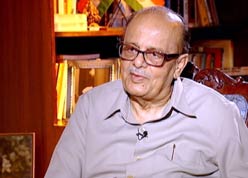 Arjun Singh - The Devil's Advocate
Arjun Singh - The Devil's AdvocateDecision on Quota is final and Chapter is Closed - Arjun singh
Parliament has taken a view and it has taken a decision, I am a servant of Parliament and I will only implement So far as I can see, it is a closed chapter and that is why I have to implement what all Parliament has said
Watch Video
Click this link for complete interview
Source : IBNLive
I’m from lower caste, I'm not for quotas: Pitroda
"You don't have to have reservation. There are opportunities available," he said.
Pitroda said there was a need to expand opportunities to ensure inclusive growth.
"We need to expand opportunities, and if you do not expand then you worry about all these issues (reservations). The key is really expansion" he told BBC news.
Emphasising on the importance of inclusive growth, Pitroda said "you cannot have growth which alienates large parts of your society.”
He said in India, irrespective of talent, the growth has been inclusive and the future has to be even more inclusive in terms of caste and in terms of background.
Noting that he himself came from a lower caste in tribal Orissa, Pitroda, who heads Worldtel, said he did not follow on reservations. "There is a path that one can take in the democratic system."
He said it was wrong to say that the Knowledge Commission had voted for or voted against reservations.
"What we have said basically is that we recognise and subscribe to the basic principle of including everybody as part of the expansion plan and growth plan. How we do it is something we need to debate," he said.
Source : Expressindia
Wednesday, May 24, 2006
Government Policy
Let down by Dr Manmohan Singh & President Abdul Kalam Azad
“We thought if not others, leaders like Singh and Kalam would have heeded our justifiable demands. But we are too disappointed to even think about the bill,” said a student from IIT.
The government’s decision to increasing the number of seats in the general category to balance the quota increase was not met with approval.
“The government doesn’t have the infrastructure to increase the number of seats in every college,” said Pravin, another student from IIT.
In the capital
Kapil Mishra, Sanjay Vats, Hemraj Singh from Delhi University and Deepak Thukral from from Bundelkhand University are to meet President Abdul Kalam Azad today at 2.45 pm today to discuss the issue.
They received a call from the president’s office after they had sent a letter to the President asking for mercy killing on Sunday.
Meanwhile, medical students in the capital are divided on their course of action.
While some of them think it is illogical to carry on the protest, others are determined to peacefully convince applicants to boycott the interview for the post of resident doctors in local medical colleges.
The interviews are being held to fill the post of the fired striking doctors.
Sam Pitroda who is known for speaking his mind has done it once again.
 Unlike the government and Prime Minister Manmohan Singh who appointed him chairman of the National Knowledge Commission, Pitroda believes that expansion of educational opportunities and facilities is the solution and not reservation.
Unlike the government and Prime Minister Manmohan Singh who appointed him chairman of the National Knowledge Commission, Pitroda believes that expansion of educational opportunities and facilities is the solution and not reservation.In an exclusive e-mail interview to Managing Editor (National Affairs) Sheela Bhatt, he said though it was imperative that we right the wrongs done to a vast section of our society, reservation cannot become a blanket solution for all time to come.
Do you identify with the comments made by two of your colleagues who resigned from the National Knowledge Commission on Monday?
Let me first say that the resignation of two of my colleagues, Pratap Bhanu Mehta and Andre Beteille, is a great loss to the Knowledge Commission. Their presence was of great value not just to me and the Commission but in our overall endeavour to turn India into a knowledge society.
My views on the question of reservations are quite well known. To the extent that Mehta and Beteille have spoken along those lines, I am in agreement with them on the need to focus on reservations in schools and not the universities.
The Commission's majority position has been quite clear in this regard. We are not in favour of reservations in the institutions of higher learning and for maintaining a status quo on other questions till such time as there is a national consensus on it.
I have spoken in favour of reservations at the primary level and in some ways even at the university level. However, we must give our institutions of higher education autonomy, freedom and flexibility to promote the best talent available to build the knowledge society of tomorrow.
We must recognise that there are separate issues related to access and excellence. We need both simultaneously.
Do you think the granting of quotas to OBCs in centrally managed/funded institutions of higher studies match the mandate given to you by the prime minister when he nominated you chairman of the Commission?
You must understand that the Commission's mandate is much larger than one or two specific issues. We have been entrusted with the task of looking at and advising on knowledge from five key standpoints of: Access to Knowledge; Knowledge Concepts; Knowledge Creation; Knowledge Application and Knowledge Services.
We are looking at generational changes and not changes related to the next term of a university. Reservations are just one part of a much larger puzzle related to access.
In access we are focusing on library networks, portals, translations, literacy, reservations and affirmative action programmes.
Don't you think that large section of OBCs in India have not been privy to advantages of reservation in the last five decades only because the government didn't improve the standards of primary education simultaneously? Why blame the poor and backward for acts of omission of the governments?
Proper primary education is the key to building a sound foundation for higher education in the university. I wish we focus on this first.
I also believe that every child must have opportunity for good education without worrying about caste or income levels. If the student is qualified we must find funding to support them in colleges.
It is time to go beyond labels that stigmatise an entire group of people. I believe now in the early part of the 21st century we should make fundamental changes in the way we approach the concept of education, employment, equality and empowerment.
How can one avoid the numerous instances where reservation has been an effective tool to empower the backward or 'dishonored' of Indian society?
I am not quite sure about the drift of your question. But if you mean how we can disregard so many examples of people having been helped by reservations, my answer would be we cannot.
But the point is it is time for a whole new approach in the 21st century. We cannot build the nation in the 21st century with the 19th century mindset.
Do you have any other roadmap to uplift the OBCs and other deserving classes than the current system of 'reservation?'
Among the five key areas that we at the Commission are looking at is access to knowledge. In that we have spoken about the need to significantly increase access to institutions of learning both at the primary as well at the higher levels of education.
Once we make access uniform I am sure you would begin to see all sections of society make gains. To improve access we must improve quantity and quality of higher education.
What is fundamentally wrong with the quota system? How do you offset the injustice meted to OBC and others since many centuries?
There is nothing fundamentally wrong with the quota system as long as it is applied judiciously and at the right levels. It cannot become a blanket solution for all time to come.
It is absolutely imperative that we right wrongs done to a vast section of our society. The question is whether keeping them frozen in those labels forever is the right approach. I do not think so.
What we need is to create opportunities for everyone of equal merit to have proper access. On this subject there are many views and many sentiments. At times people look at this in terms of black and white while there are many shades of gray.
Would you like to share your own struggle to come up in life although you had a caste disadvantage? Did you face social speed-breakers or not?
It is my considered position to reject labels on the basis of anyone's birth. It is an outdated, antiquated thinking to keep talking about caste based disadvantages. The first step for me is to reject all such labels in the 21st century and focus on equality for youth.
In my case ;hard work, good education and focus on technology helped me a great deal to overcome any disadvantages that I had because of what people still obsessively describe as caste.
Technology gave me an equal footing for everything I have done in my life and career. I have said this before. Technology is a great leveler, second only to death. I have always negotiated challenges on the basis of my whatever little intrinsic merit quality and perseverance. I have never taken the route of quota or reservations. I hope this shows that it is possible.
Source : Rediff
India to implement caste quotas
After a meeting which ended late on Tuesday night, the Congress-led Indian government announced that a bill would be introduced in parliament. The plan will come into effect in 2007. Those opposed to it say it will lead to a drop in college standards.
At present, 22.5% of college places are "reserved" for Dalits, or untouchables, who are at the bottom of India's caste hierarchy, and tribal students. Under the new plan, 27% of places will also be set aside for lower caste Hindus known as other backward castes (OBCs) and other socially disadvantaged groups.
"The percentage of reservation for OBCs will be fixed at 27%," Defence Pranab Mukherjee told reporters after a three-hour meeting between the government and its allies.
"Legislation for this purpose will be brought in parliament in the monsoon session."
Tuesday, May 23, 2006
PoK students want seats in IIM/IITs!
Students of Gilgit-Baltistan in Pakistan-occupied Kashmir have demanded reservation for them in India's elite educational institutions.
"We want quotas in the Indian Institute of Management, the Indian Institute of Technology and law colleges of India. India should not ignore us," said Shafquat Ali Inqlabi, a resident of Gilgit, told rediff.com.
Inqlabi and other 18 others are visiting India to participate in a conference organised by the New Delhi-based Institute for Conflict Management to discuss 'Alternative Futures' for Jammu and Kashmir on May 19-20Inqlabi says, "Indian maps always show Gilgit and Baltistan as part of India. The Constitution of India mentions that we are part of India. In your eyes, we are Indians and Pakistan has 'occupied' Indian territory. Then, why should we not get admissions in the IIMs and the IITs?" he says, adding, "I am an engineer, but now, I want to study law in the best of Indian law colleges. Help me get admission."
The Karakoram University is the only institution for higher studies in Gilgit-Baltistan. The members of the delegation claimed that it does not have proper facilities.
Inqlabi, a political activist, says, "India should either accept us as Indians or give up claim on the territory."
Source : Rediff
Docs stand firm, as talks with govt fail
"We are still struck on appointment of committee of experts to review the existing reservation policy," Dr Apurva Mehra, a representative of the Youth For Equality told reporters here, after a six-hour meeting with Union health secretary P C Hota.
"The government is adamant. We are disappointed and will continue our agitation," he said.
The medicos and Hota held two rounds of talks today with the students now seeking a hold on introduction of OBC quotas until the experts committee submits its review report on the existing reservation policy.
"We are now demanding that the proposal for OBC quotas should not be implemented unless the expert committee submits its review report on the existing reservation policy," student leader Amitasha Sinha, whose Youth for Equality grouping had insisted on a complete withdrawal of the reservation proposals, told PTI.
The protesting students have already turned down Prime Minister Manmohan Singh's appeal to call off their strike.
Meanwhile, striking senior resident doctors remained defiant to notices to vacate the hostels, saying they would continue with their agitation till their demands were met. Junior doctors of medical colleges and hospitals also continued their strike that has paralysed health services in the capital.
Delhi docs issued termination notices
Termination notices were today issued to striking medicos in state-run hospitals in the capital, even as the Delhi government today came out with ads for recruiting junior and senior doctors to cope with the situation.
"The medical superintendents in Delhi government hospitals have started issuing notices to the striking doctors this morning," health secretary D S Negi said.
Notices were issued to the more than 700 doctors who are on strike to resume duty within 24 hours or face termination of service.
"The Army has asked us to give a concrete proposal on lending its doctors for the Delhi government hospitals. It has said the Army doctors can be deployed in only one hospital at a time. We are examining it," Negi said.
There are 45 hospitals under the Delhi government, of which the three teaching hospitals LNJP, GTB and DDU are the worst affected by the strike.
Calling on professionals to strike work on May 25
New Delhi: With no fresh talks to resolve the differences and pro-quota voices becoming stronger, the anti-quota medicos today decided to step up their agitation, calling on professionals to strike work on May 25 and express their solidarity.
The Indian Medical Association, which had earlier, called for a medical bandh for the same day, however, decided to leave the decision to its state units.
With the stalemate continuing as there was no fresh initiative from the government side, the agitating doctors held hectic parleys on their future strategy.
"We are asking professionals like merchants, corporates, and the bar association not to work on May 25 as a token of their support to us," Vinod Patro, president of the AIIMS Resident Doctors Association said.
The association said there were no fresh talks and the strike was continuing. While most of the students who had gone on hunger strike had moved out, it said that 100 young scientists from JNU, DU and ICGEB (International Centre for Geneic Engineering and Biotechnology) had joined the relay fast today.
Meanwhile, the Delhi Medical Association, the state branch of the IMA, decided to hold a dharna at AIIMS between 11 am and 5 pm on May 25 in favour of anti-quota striking medicos.
"We have decided to organise a dharna as IMA has left the decision of a medical bandh to its state branches," V K Monga from the DMA said.
Monday, May 22, 2006
Two members quit the Knowledge Commission
In an embarassment to the government embroiled in the row over reservations, two leading members of the National National Knowledge Commission resigned on Monday, protesting quotas in central educational institutions.
Pratap Bhanu Mehta and Andre Beteille said they had quit the Commission, which was set up by Prime Minister Manmohan Singh. Its views on reservation had recently come under attack from Human Resource Development Minister Arjun Singh.
"Many of the recent announcements made by your government with respect to higher education leads me to the conclusion that my continuation on the Commission will serve no useful purpose," Mehta said, in a resignation letter addressed to the prime minister.
When contacted by PTI, Beteille, a professor emeritus of sociology, said, "I have submitted by resignation this morning."
Mehta and Beteille were among the six members who opposed reservation proposals at a meeting of the commission in Bangalore recently.
Source : RediffIIT students want to commit suicide
The students handed over the memorandum to the President's Secretariat saying they have no other option left with them if such a legislation giving 27 per cent quota to OBCs in elite educational institutions comes through, said Safal, a Youth for Equality representative.
Source : The Times of India
Sunday, May 21, 2006
What proportion of our population is OBC?
The NSSO data also shows that already 23.5 per cent of college seats are occupied by OBCs. That’s just 8.6 per cent short of their share of the population according to the same survey. Does that order of difference justify reservations? Or does it call for some other form of action instead?
A study done by two IIT directors (and quoted by SS Gill, Secretary to the Mandal Commission) shows that only 50 per cent of vacancies at IITs for SCs and STs are filled up. Of the remaining half, 25 per cent drop out before completing the course.
BHU medicos release Pandit Nehru's anti-reservation letter
The very grand-father-in-law of our illustrious super Prime Minister Sonia Gandhi, Pt Nehru, had this to say on Reservation in a letter that he wrote on the 27th of June 1961 to the Chief Ministers of that time:,
The letter reads :
''I dislike any kind of reservation, more particularly in Services. I react strongly against anything, which leads to inefficiency and second rate standards. I want my country to be a first class country in everything. The moment we encourage the second rate, we are lost.
''The only real way to help a backward group is to give opportunities of good education, this includes technical education, which is becoming more and more important. Everything else is provision of some kind of crutches which do not act to the strength or health of the body.
''We have made recently two decisions, which are very important, one is universal free elementary education to, that is the base and the second is scholarships on a very wide scale at every grade of education to the bright boys and girls, and this applies not merely to literary education, but much more so, to technical, scientific and medical training.
''I lay stress on the bright and able boys and girls because it is only they who will raise our standards. I have no doubt that there is a vast reservoir of potential talent in this country if only we can give it opportunity.'' ''But if we go in for reservations on communal or caste basis, we swamp the bright and able people and remain second rate or third rate. I am grived to learn how far this business of reservation has gone based on communal considerations.
''It has amazed me to learn that even promotions are based sometimes on communal or caste considerations. This way lies not only folly, but disaster. Let us help the backward groups by all means, but never at the cost of efficiency. How are we going to build our public sector or indeeed any sector with second rate people.''
This way, he added, "Lies not only folly, but also disaster."
Delhi: Army doctors on standby
The Union Health Ministry sought help of doctors from the army and railways on Saturday, to maintain services in hospitals hit by medicos' stir even as it decided to issue notices to striking doctors to vacate hostels.
"The medicos will be issued notices to vacate hostels if they do not call off their strike," officials said.
Walk-in interviews to recruit new doctors would begin from Monday. The advertisements for the same had appeared on Saturday.
The government had sought help of doctors from army and railways from Monday to maintain health services in hospitals, they said.
The Director-General of Armed Forces Medical Services, Vice Admiral V K Singh, said Army doctors were on standby in Delhi. "But, we have not yet taken over any medical facility in Delhi. We have no such instructions yet," he told PTI when asked about media reports that army doctors had been called in.
Navjot Sidhu attends anti-reservation rally
''We are not against the backward classes or their uplift.
The government must ensure that they get primary education so that they are capable enough to compete at higher level on merit,'' Mr Sidhu said in his address to more than 5,000 protestors including doctors, medical students from across the nation and scores of people from various walks of life, at Jantar Mantar here.
Asking the protestors, opposing the Government's proposal of 27 per cent reservation for OBCs in higher educational institutions, to continue with agitation till the Government relents, he said merit should not become a ''victim of vote bank'' politics.
''The Government must open more institutions to ensure education for all. The existing reservation policy is not fair on meritorious students,'' he added.
The Cricketer-turned-politician said the Government was trying to divide the entire nation on caste basis.
''Merit should not be compromised and the agitation should go on till the government relents,'' he said.
Waving placards and raising anti-Arjun Singh and anti-reservation slogans, about 5,000 protestors, under the aegis of Youth for Equality', paraded towards Jantar Mantar from Maulana Azad Medical College.
The marchers of the 'Chalo Delhi Rally', were shouting ''Abolish Reservation'', ''Bring Back Merit'' and ''Down with Arjun Singh'' slogans, and demanding complete roll-back of the Government proposal and review of the existing reservation policy.
Saturday, May 20, 2006
Pro, anti reservation clash in JNU
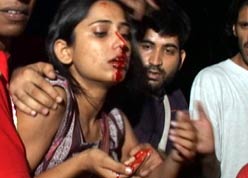 Watch Video
Watch Video Reservation politics is finally taking its toll on students as was obvious at the Jawaharlal Nehru University (JNU) campus in the Capital on Friday night.
The sharp divide between the pro- and anti-reservation students came to the fore when pro and anti reservation students clashed on the campus.
One girl was severely injured in the clash.
On Friday evening, anti-reservation protestors at JNU were taking out a peaceful candlelight march. As per plan, their counterparts from IIT Delhi joined in the march.
However, the pro-reservation JNU students, who mostly belong to or sympathise with the Left, didn't apporove.
They tried to stop the IIT students from entering the campus and that is what started it all - a small skirmish that turned into complete chaos and mayhem.
Friday, May 19, 2006
100 SC/ST seats at IIT go waste each yr
Statistics from the last three years reveal that nearly 50 per cent of the seats reserved for SC and ST students are not filled for want of candidates.
| The data SC/ST students admitted in last three years in IIT, Mumbai | ||||
| Year | Graduate | Postgraduate | ||
| SC | ST | SC | ST | |
| 2003-04 | 41 | 06 | 49 | 21 |
| 2004-05 | 59 | 13 | 34 | 18 |
| 2005-06 | 66 | 12 | 51 | 17 |
| Seats reserved | 84 | 46 | 107 | 53 |
Thursday, May 18, 2006
97 doctors on hunger strike collapse
"Those who were unwell would not be asked the rejoin the strike because we do not want them to be imbalanced again. Thirty two remaining doctors would continue their hunger strike and then the next batch of over hundred doctors would take over from them," Dr Vishal Sharma of the University College of Medical Sciences told rediff.com on Thursday night.
Earlier, a group of seven doctors, including three senior doctors and four from Youth for Equality, had met Defence Minister Pranab Mukherjee who is heading a four-member team of ministers that will hold talks with the striking doctors, and told him about the larger issues involved in the reservation policy.
"The talks were held in good atmosphere but they were inconclusive. The government told us that the general seats in the medical colleges would not be touched. But we have told Union Minister Oscar Fernandes who met us later in the evening about the impact that the reservation policy may have on other spheres of life," Dr Sharma said.
Groups of doctors distributed leaflets in the Delhi Metro stations, Connaught Place and other prominent markets to explain their point of view to the general public and to educate them about the motives behind their strike.
In the one-page appeal to citizens, the doctors apologized for the inconvenience caused to the general public. They wanted to know why reservation must be applied in the Post Graduate or doctor of medicine courses when doctors from backward community had already been given level playing field during the undergraduate courses. Merit should be the only criterion.
"Do you want undeserving people to do cardiac surgeries on you," they asked.
Quota will kill quality - Narayan Murthy
 Watch Video
Watch VideoInfosys chief and Chairman of the governing body for IIM Ahmedabad NR Narayana Murthy has criticised the Government's plan to increase seats in IITs and IIMs to offset the impact of reservations on general category students.
The Government proposed to increase seats to appease the students protesting against the proposal to have 27 per cent reservation for Other Backward Classes in top institutes.
Murthy says the goverment has no business to decide about seats. "People sitting in New Delhi cannot take these desicisons. A lot of variables need to be taken into account like the number of classrooms and hostel rooms. It is up to the chairman and the directors of the IITs and IIMs to take a desicison," says he.
He also pointed out the difficulty faced by these premier institutes in attracting good faculty members.
Murthy also criticised the Government for keeping the salary levels low and under strict control.
"It is unfortunate that these decisions do no lie with the institutes but with the Government. We are not going about this in the right way. Our insitutes will never be the world class institutes if this continues," he said.
Narayana Murthy's comments are the latest in a series of battles the IIMs have fought with the Government. It now remains to seen who wins this round.
Anti-quota fire engulfs India
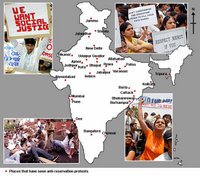 The government's move to increase reservations in educational institutions has led to nationwide protests:
The government's move to increase reservations in educational institutions has led to nationwide protests:| Ahmedabad | Burla | Jammu | Rewa |
| Ajmer | Chennai | Jodhpur | Shimla |
| Allahabad | Cuttack | Kolkatta | Tripura |
| Bangalore | Goa | Kota | Udaipur |
| Berhampur | Gwalior | Mumbai | Varanasi |
| Bhopal | Indore | New Delhi | |
| Bhubaneswar | Jabalpur | Patna | |
| Bikaner | Jalandhar | Pune |
Ministers brainstorm for quota solution
An informal group of senior ministers -- which Prime Minister Manmohan Singh set up on Wednesday to hold talks with political parties and academicians for evolving a comprehensive package in the wake of the anti-reservation stir crippling the healthcare services in parts of the country -- met on Thursday to thrash out a solution.
Defence Minister Pranab Mukherjee, Finance Minister P Chidambaram and Human Resource Development Minister Arjun Singh were present at the meeting. Though they are not part of the group set up by the prime minister, Agriculture Minister Sharad Pawar and Health Minister Anbumani Ramdoss also attended the meeting.
Sources said the ministers deliberated on ways and means to cushion the effect of implementing the quota by increasing the intake and raising the number of institutions.
The government has already told Parliament that there was no dilution of its commitment to provide OBC quota in elite educational institutions.
The government has constituted the committee of ministers -- an informal group that is neither a Group of Ministers nor a Cabinet Committee -- realising that the task ahead is difficult and a consensus needs to be evolved ahead of the new academic year.
Wednesday, May 17, 2006
OBC quota: Govt sets up 4-member committee
The committee comprising Pranab Mukherjee, P Chidambaram, H R Bhardwaj and Arjun Singh was set up by Prime Minister Manmohan Singh on a day when government told the Lok Sabha that there was no dilution of its commitment to provide OBC quota in elite educational institutions.
The reported proposal of the prime minister initiating discussion with political parties was also given up for the time being because of the current atmosphere, sources said.
A meeting of the Forum of OBC members of Parliament convened by Congress MP Hanumant Rao, to which MPs from the SC and ST were also invited, was cancelled at the last minute following "requests" by appropriate authorities "against precipitating matters".
The word going round was that there was no need for such a meeting on a day when the government had made its intention clear on the OBC quota issue.
The government has constituted the committee, which is an informal group and is neither a GoM nor a Cabinet committee, in view of the realisation that the task ahead was a difficult one and a consensus on a package needed to be evolved ahead of the new academic year.Moving slowly against the backdrop of the anti-reservation stir, the committee was set up to make the bitter pill acceptable to all sections of society and to cool the atmosphere marred by growing acrimony on the issue.
Is Arjun waiting for a Rajeev Goswami?

Bruised faces and swollen limbs—medical students protesting against the new reservation proposal are getting a first-hand treatment of police brutality and Government insensitivity.
Just when the anti-reservation agitation needed to be handled with patience and subtlety, police thrashed medical students in Mumbai. Before that, medical students in Delhi were attacked with water cannons and dragged away during protest marches. And all this was on camera.
Baton-wielding policemen chasing and beating up young, apron-clad boys, an innocent-looking Kolkata girl braving police water cannons and students being dragged out of a blockade to be beaten up black and blue in Mumbai — these have been some of the abiding images of the agitation, which is now fast taking the shape of Mandal II.
With Union HRD Minister Arjun Singh still playing hide and seek and the Manmohan Singh government observing an ominous silence on the reservation issue, it's both surprising and intriguing to see the police going all-out to stall a popular and growing protest.
Do we really need such strong-arm police tactics to stall a protest?
Telly doctors' reserved opinion
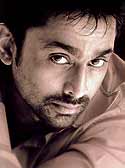 Anuj Saxena
Anuj Saxena(has done his MBBS and used to practice medicine)
Your stand on reservation
I am neither for it nor against it. But at the end of the day, merit should have been given relevant importance for people who work hard. I have gone through the agony of ‘will I, won’t I’ get a medical seat, so I think an individual’s hard work should be given importance.
Do you support the agitating students?
Yes, but things can be resolved more diplomatically and through dialogue. We are civilised enough to find solutions to problems in a less violent manner than what is currently being portrayed.
Your say on the police assault
That’s what a cop normally does, which is unnecessary and unwarranted. But I guess they must be having directions instruction from superiors.
Stepping into the doctors’ shoes
Probably join the protesters, but then again... you never know.
Telly doctors' reserved opinion

Your stand on reservation
I am totally against any kind of reservation. I am not against the SC/ST students, but what I demand is good education for them. Let them get good percentage and then vouch for the merit seats.
Do you support the agitating students?
Yes, I whole-heartedly support them and feel bad that some of them have suffered grave injuries. These are men and women who will be future doctors and save our lives. How
can you treat them like they are some hooligans and beat them up?
Your say on the police assault
The cops responsible for the attack should be punished.
It was wrong for them to raise their sticks on students who were silently making some demands.
Stepping into the doctors’ shoes
I would have gone on the streets, organised mass rallies and made sure my voice was heard.
************************************************************************************************************
 Rupali Ganguly
Rupali Ganguly (Dr Simran in Sanjivani)
Your stand on reservation
These are doctors who will be responsible for saving lives.
Reservation will only create differences between the students and dilute the ones with merit and good education. We are living in an age where caste and creed have taken a backseat, so why judge students on that basis.
Do you support the agitating students?
Yes, I totally support them. They carried their protests out in a very dignified manner and did not let it turn into something violent.
Your say on the police assault
It’s unfair for the cops to beat them up. These are students, not terrorists,
so how can you treat them like this. Police should instead devote their time in solving
criminal cases and chasing hooligans.
Stepping into the doctors’ shoes
I would have written letters to the government and held silent marches. In fact,
I am planning to organise a signature campaign with friends.
Anti-quota hunger strike enters fourth day
New Delhi: Protesting medical students today began a door-to-door campaign seeking public support to broaden their anti-quota agitation while the indefinite hunger strike by students of five premier medical colleges in the national capital entered the fourth day.
Hundreds of medical students under the banner of 'Youth for Equality' will move around in residential areas and distribute pamphlets to create awareness among the public about their agitation and to seek support, the students said.
The decision to broaden the agitation was taken after the Government showed "scant regard to the sentiments of the students", who have been protesting the proposed quota-hike for OBCs in elite educational institutions.
The students had yesterday appealed to Prime Minister Manmohan Singh to set up a non-political judicial committee to review the existing reservation policy and sought an audience with him to discuss the issue.
Meanwhile, the indefinite hunger strike by around 150 students of five premier medical colleges of the capital at the All India Institute of Medical Sciences (AIIMS) entered the fourth day.
Senior doctors of AIIMS have also come out in support of the striking resident doctors and medical students and decided to observe a "black day" tomorrow, they said.
However, the agitation suffered a minor setback last night when resident doctors of the AIIMS decided to resume duties after talks with hospital authorities.
Tuesday, May 16, 2006
Did quotas kill democracy?
 Medical students shout anti-government slogans as they sit beside an effigy representing democracy during a demonstration.
Medical students shout anti-government slogans as they sit beside an effigy representing democracy during a demonstration.The indefinite hunger strike by medical students in the capital against the proposed quota for OBCs in elite educational institutions entered the third day on Tuesday.
At least 100 students of Delhi's five premier medical colleges and some adjoining colleges, under the 'Youth For Equality' banner, continued their indefinite hunger strike at All India Institute of Medical Sciences, demanding immediate rollback of the controversial proposals and review of the reservation policy.
Meanwhile, the government is considering to increase the number of seats in institutes of higher education. Human Resource Development Minister Arjun Singh has, however, reiterated that there will be no going back on the proposed 27 percent reservation for OBCs.
No great bias towards upper castes
Upper castes in the country do not have a dramatically higher chance of getting top jobs in comparison with SC/ST and OBCs, in case all of them have the same level of education, i.e. at least a high school degree.
Data taken from the National Sample Survey’s 1999 round show that upper castes who’ve passed out of school (at the very minimum), whether they’re Hindus, Sikhs or Christians, have a 39 per cent chance of landing a good job.
This is not dramatically different from the situation for other groups. While educated OBCs who passed high school had the smallest probability of getting a good job, of 28.6 per cent in 1999-2000, this was 31.7 per cent in the case of SC/STs.
If, however, you now decide to introduce reservation in jobs, the situation will change. If 22.5 per cent of the private sector’s top jobs are reserved for SC/STs, for instance, this means that, based on the 1999-2000 data, SC/STs will get a total of 2.9 million jobs, compared with the without-reservation 1.4 million.
In the case of OBCs, once the reservation of 27 per cent is accepted, the number of good jobs that are theirs for the asking will be 3.5 million – since the number of educated OBCs still remains the same 8.4 million, the probability rises by around 45 per cent.
The figure falls by 22 per cent for Muslims and for around 29 per cent in the case of upper caste Hindus, Sikhs and Christians.
Monday, May 15, 2006
The move has led to a political row
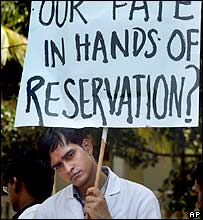 On Sunday, the demonstrations - which began in Delhi - spread to Bangalore, Ahmedabad and Mumbai (Bombay).
On Sunday, the demonstrations - which began in Delhi - spread to Bangalore, Ahmedabad and Mumbai (Bombay). Doctors from private hospitals decided to join government doctors for a shut down called by the Indian Medical Association on Monday but emergency health services have been kept out of the strike.
Junior doctors began an indefinite strike on Friday after a protest march by hundreds of medical students in Delhi was disrupted by the police using baton, tear gas shells and water cannons.
The protests were sparked by a plan, announced by the country's education minister, to increase the quota in colleges from 27% to nearly 50%.
The government says it will provide students from poor backgrounds equal opportunities.
But the move has come under fire from the students as well as people in the business and education community.
Strike hits Delhi health services
 Medical services in the Indian capital, Delhi, are being badly affected because of a strike by doctors in both private and state hospitals.
Medical services in the Indian capital, Delhi, are being badly affected because of a strike by doctors in both private and state hospitals. The strike has been called by the Indian Medical Association to protest over police violence against medical students last week.
College students across India have been protesting for weeks against a proposed affirmative action programme.
The government plans to increase quotas in Indian colleges.
Its proposal that nearly 50% of the seats in medical colleges and other institutes be set aside for low-caste Hindus has sparked a major row.
Health services in all government hospitals in Delhi are already hit by an indefinite strike junior doctors began on Friday.
Indian health ministry officials say the government is making all arrangements to ensure that services are not crippled due to the strike.
Sunday, May 14, 2006
Students from the All India Institute of Medical Sciences (AIIMS)
 Students from the All India Institute of Medical Sciences (AIIMS) shout slogans during a strike in New Delhi, on May 14, 2006.
Students from the All India Institute of Medical Sciences (AIIMS) shout slogans during a strike in New Delhi, on May 14, 2006.The students and doctors began an indefinite fast in New Delhi to protest against the government plans to introduce reservation in medical, engineering and management studies for OBC students.
Quota row hots up, spreads across country
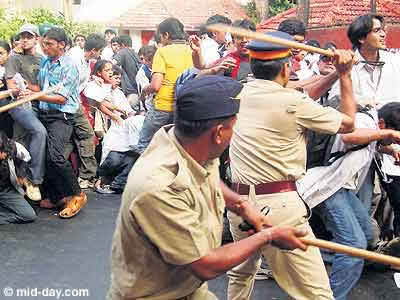
Medicos today intensified their anti-reservation protest in the national capital and several cities across the country by striking work and disrupting services at state-run hospitals, causing hardship to thousands of patients.
The medicos also intensified protests at Amritsar in Punjab, Ahmedabad in Gujarat, Bangalore in Karnataka and Cuttuck, Burla and Berhampur in Orissa.
In Delhi, Vinod Patro of the AIIMS Resident Doctors Association said, "We will continue our hunger strike and will not attend our duties."
"We demand a total rollback of the proposal to give 27 per cent reservation to OBCs and a review of the present reservation policy," said Amitasha, a representative of students of Lady Hardinge Medical College.
Anti-reservation fire rages across India
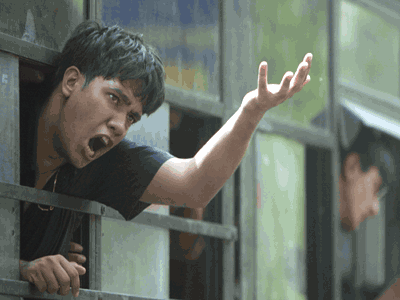
A day after medical students protesting over the reservation proposal in higher centres of learning were water cannoned in New Delhi, more than two dozen medical students were detained in south Mumbai after police resorted to cane-charging to disperse a gathering who staged a rasta-roko at Walkeshwar area of the city.
Students blocked vehicular traffic on the busy Walkeshwar road that leads to the Governor's and chief minister's houses on Saturday afternoon, leading to a huge traffic jam in south Mumbai, police said, adding, when students refused to disperse, police cane-charged the students and detained more than two-dozen of them.
Similar protests were also reported from Gujarat and Orissa.
Mumbai doctors strike tomorrow
Clinics shut on Mon
Though emergency services in hospitals will not be affected, major operations will be postponed for a day. The strike will not affect the ICU (intensive care unit). “Barring emergency cases all the services will be shut down,” Suniti Kshirsagar told Sunday.
“We are trying to mobilise as many doctors as possible.” If the matter intensifies, more than two lakh doctors all over the country will go on strike.
Mumbai medicos lathicharged, injured
Saturday, May 13, 2006
Quota issue: Medicos launch nationwide strike
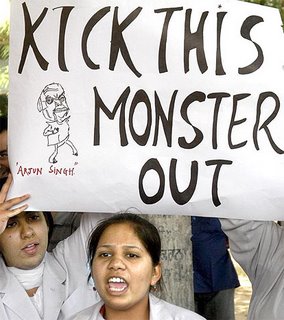
The medicos' anti-reservation stir gained momentum on Saturday with resident doctors joining students in striking work in the national capital and several other cities, causing hardship for thousands of patients at state-run hospitals.
In Mumbai, police mercilessly beat students including women who had gathered peacefully and blocked traffic on the busy Walkeshwar Road leading to the Governor's and Chief Minister's residences to protest against the Centre's move to have 27 per cent reservations for OBCs in elite educational institutions.
Policemen were seen dragging and caning several students. Over a dozen students were injured in the police action and two dozen were detained.
The functioning of five government hospitals in Delhi, including the prestigious All India Institute of Medical Sciences (AIIMS), was paralysed as resident doctors did not report for duty. Hundreds of patients and their kin were seen desperately looking for help.
Monday, May 01, 2006
IIT’s quota students find going too tough
Most reserved category students at IIT are not able to cope with the pressure, say professors at IIT-Delhi — substantiating their claim with statistics doled out by the Students Review Committee (SRC).
The SRC, comprising professors, counsels students who perform badly. According to data for the current session, 73 of the 144 students referred to the SRC (for facing academic problems) belong to the reserved category.
IITs have 22.5 per cent of their seats reserved for students from SC/ST category. So out of 2,100 seats for all streams of B Tech in IIT-Delhi, 473 are for quota students.
"There has been no change of trend over a period of time. Of all students referred to the SRC, a major proportion belongs to the reserved category", said a professor.
"The trend is that most of these students lack the very basic knowledge of core subjects in the area. It is not just lower grades, they also face competition related issues. A large number of quota students get good stream like computer sciences and mechanical engineering without much effort. But they can't compete, and mid way they ask for transfer to easier streams like civil engineering and textiles", he said.

